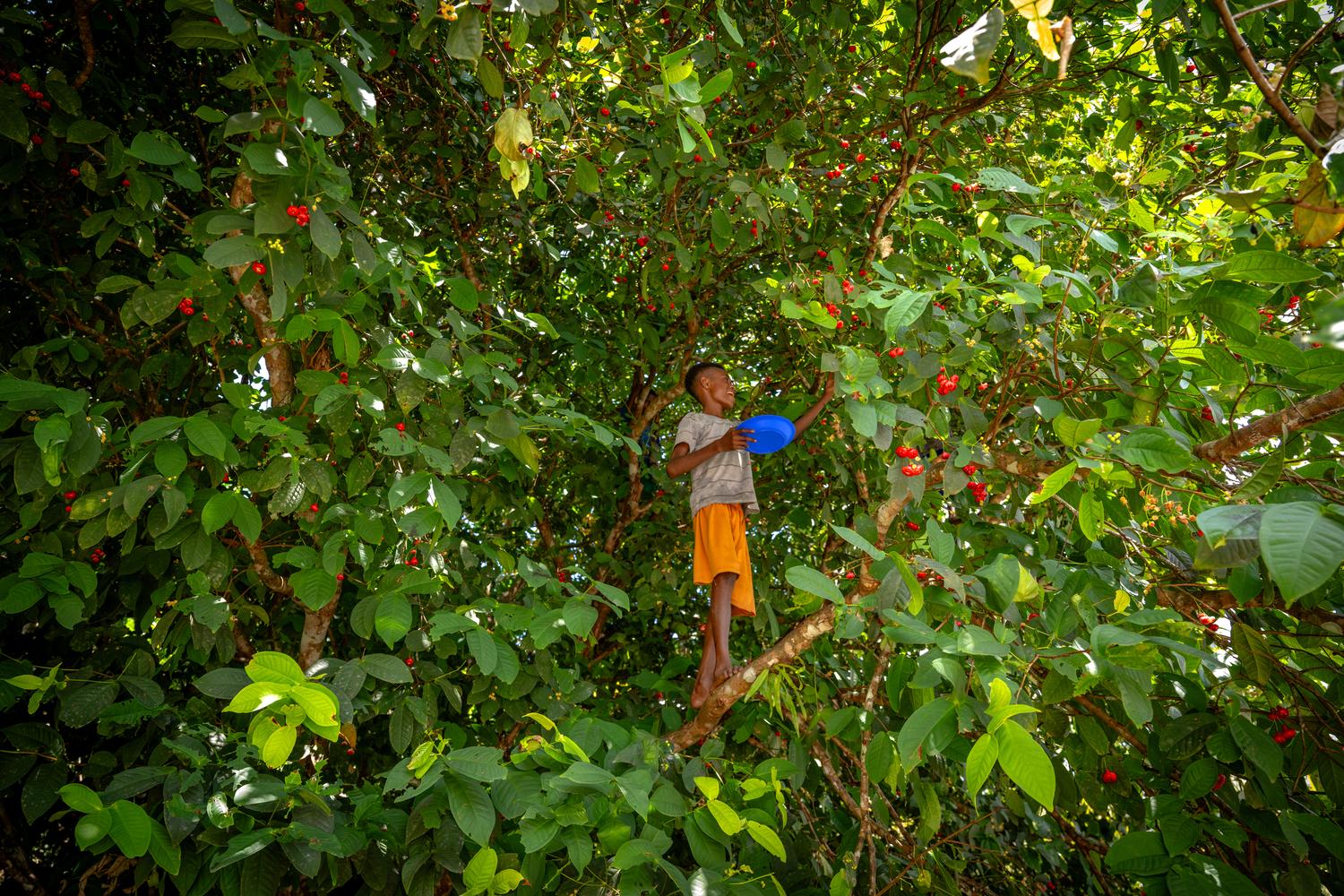
Comprising the western half of the island of New Guinea and spanning an area of some 60,000 square kilometers (23,166 square miles) — roughly the size of Latvia or the U.S. state of West Virginia — Indonesia's West Papua boasts mountain peaks, valley lowlands filled with virgin forests, coastal mangroves and numerous coral reefs in the surrounding waters.

“Irrecoverable carbon” refers to the vast stores of carbon in nature that are vulnerable to release from human activity and, if lost, could not be restored by 2050 — when the world must reach net-zero emissions to avoid the worst impacts of climate change. Learn more about this critical research.
What's more, West Papua has some of the highest concentrations of irrecoverable carbon in the world — most of which is locked away in dense mangrove forests and moist peatlands.
In late 2023, Ami Vitale traveled to Konda District, West Papua, to spend time with members of several local tribes, who live sustainably off the land and waters around them, taking only what they need.
In 2024, four tribes in Konda District gained legal recognition of their ancestral territories — an effort that was supported by Konservasi Indonesia, Conservation International's partner in Indonesia.

In West Papua's South Sorong, a trio of formidable advocates — the Sianggo sisters — Marica (left), Hendrina (center), and the charismatic Fransina, (right) have taken on the mantle of advocacy, embodying a resilient spirit determined to protect their sacred forests. While influential community members faced pressure to sign away their forests to palm oil during ethically dubious negotiations, these sisters stood firm. Partnering with organizations like Konservasi Indonesia, the community launched a participatory mapping initiative in June 2021. This initiative was crucial, not just for demarcating and protecting customary lands, but also for invigorating the community’s sense of identity and stewardship.
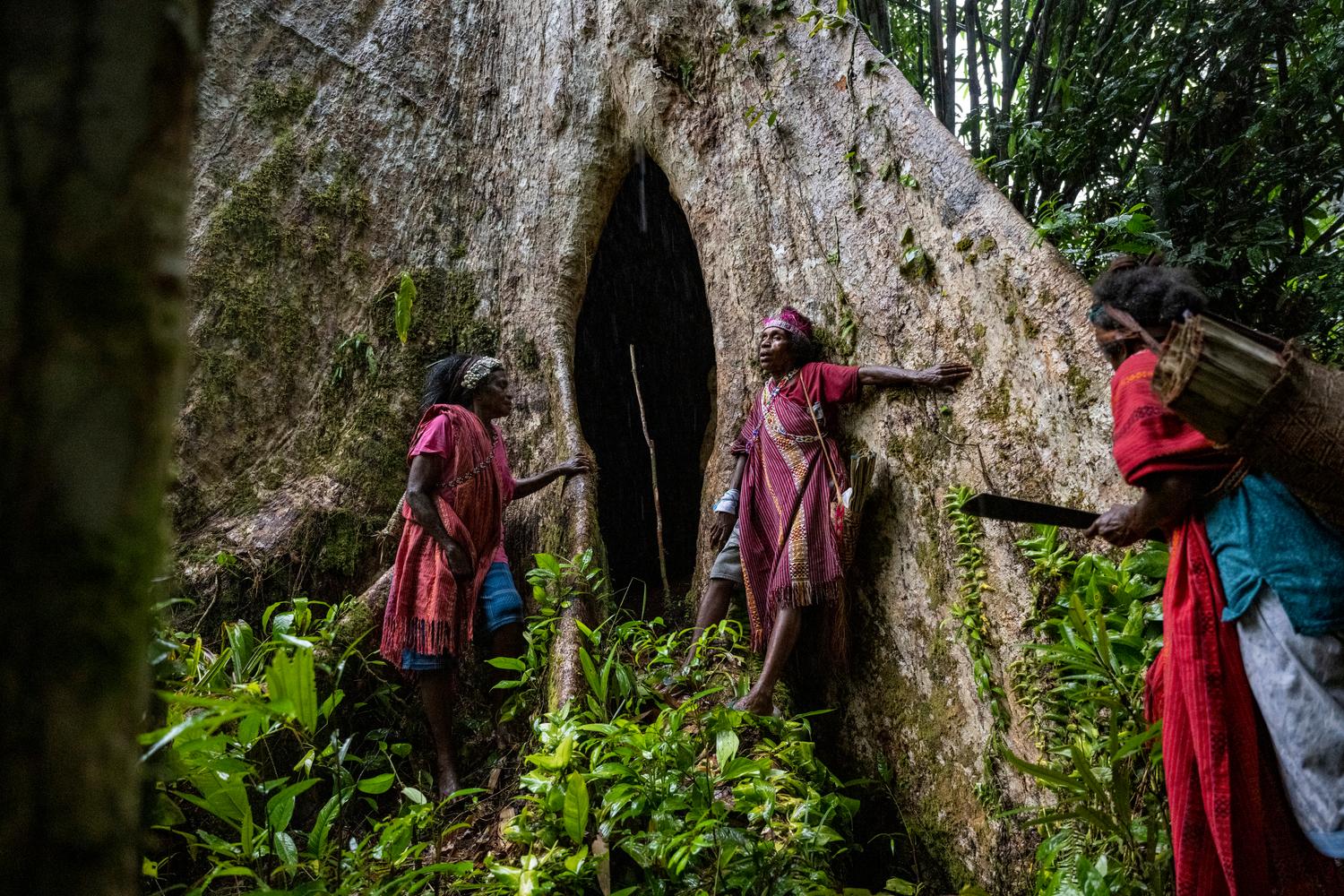
Living under the threat of deforestation, the Sianggo sisters made it their mission to advocate for sustainable practices that honor their connection to the land. After years of persistent activism, May 2024 heralded a landmark Supreme Court ruling affirming the villagers' rights to their ancestral lands. This victory resonated throughout the region, kindling movements across Indonesia and instilling hope that even small communities could challenge power dynamics and effect change.
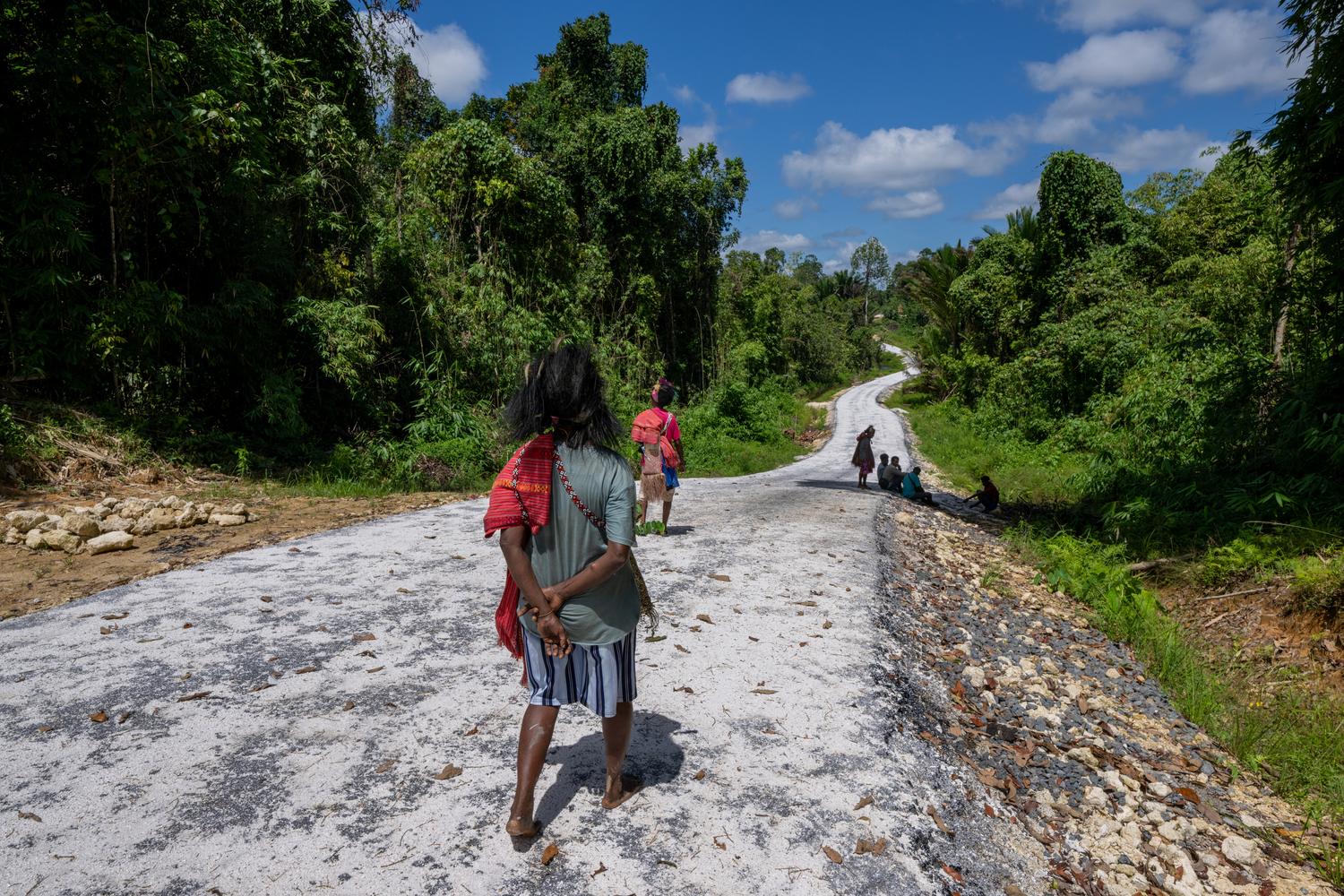
The Sianggo sisters walk down newly created roads cutting through their once-untouched forests, paving the way for loggers and relentless encroachment.
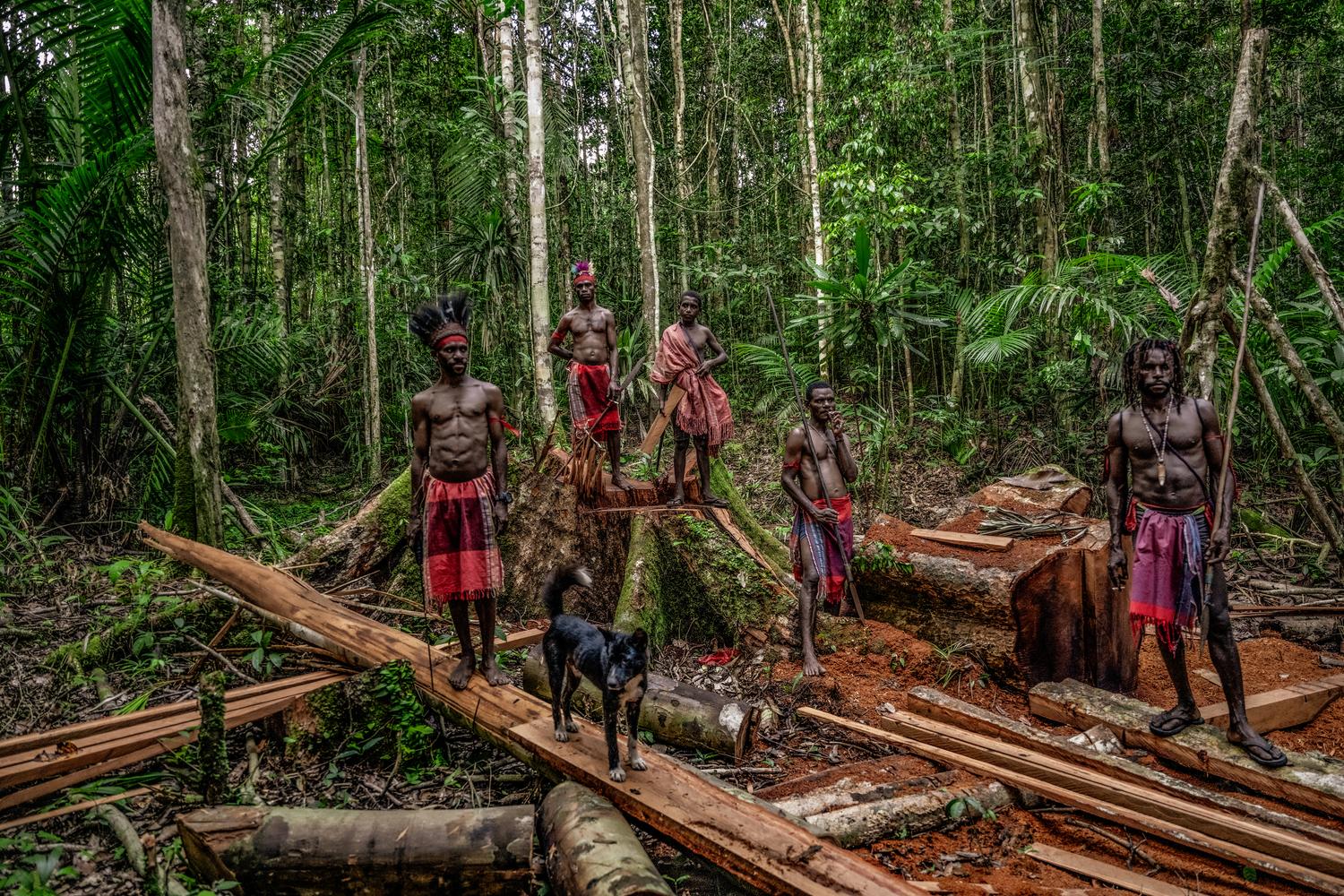
In Nakna village, South Sorong, West Papua, a group of young men stand amidst freshly logged ironwood trees. The villagers' fight garnered international attention after a landmark Indonesian Supreme Court ruling affirmed their rights to these sacred lands. Yet, the presence of roads opening paths to exploitation means their battle is far from over.
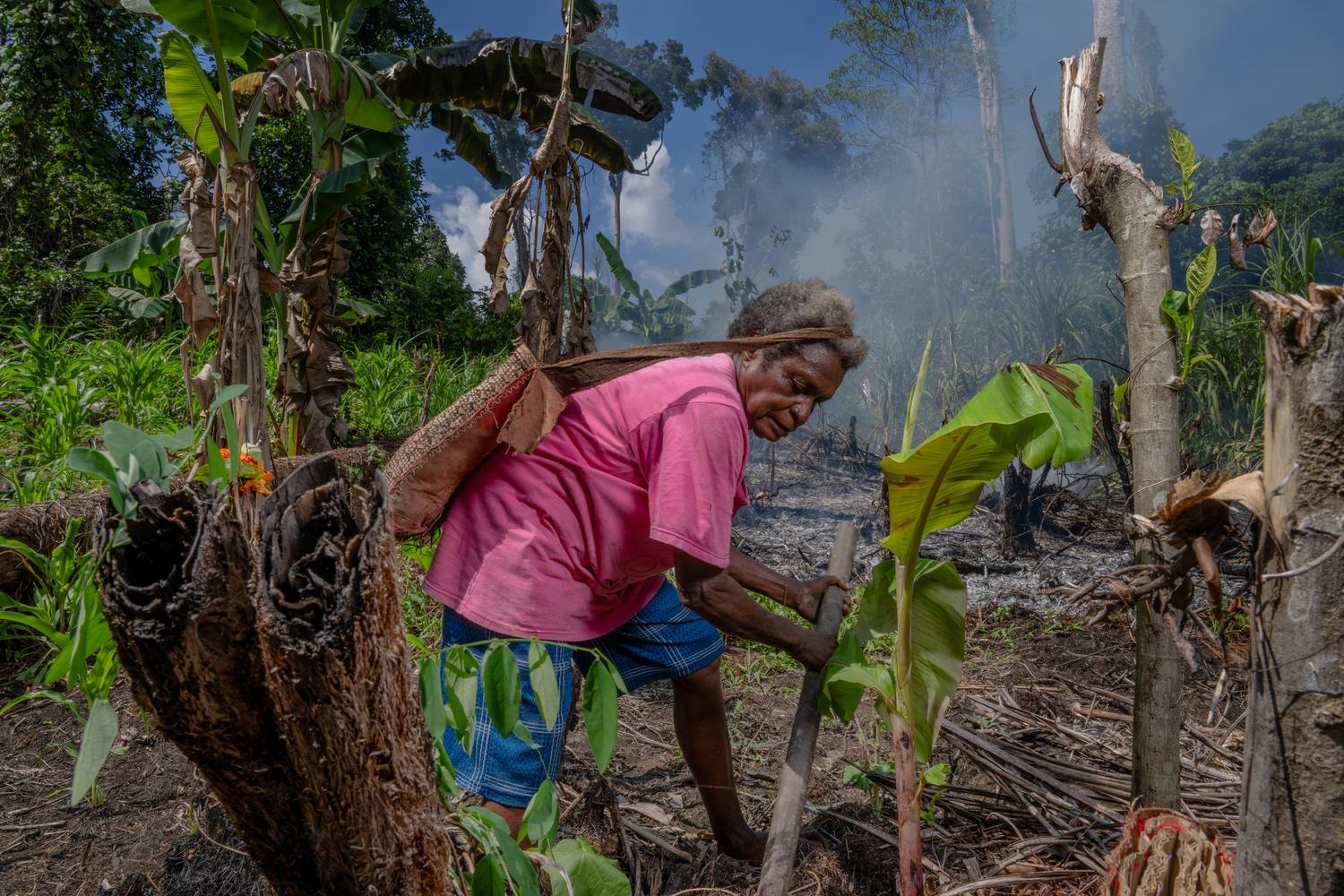
Marica Sianggo plants banana trees amidst the dense forest, a testament to her community's commitment to sustainable living. Balancing the bounty of their rich forests with the needs for agriculture, they choose biodiversity over monocultures like palm oil.
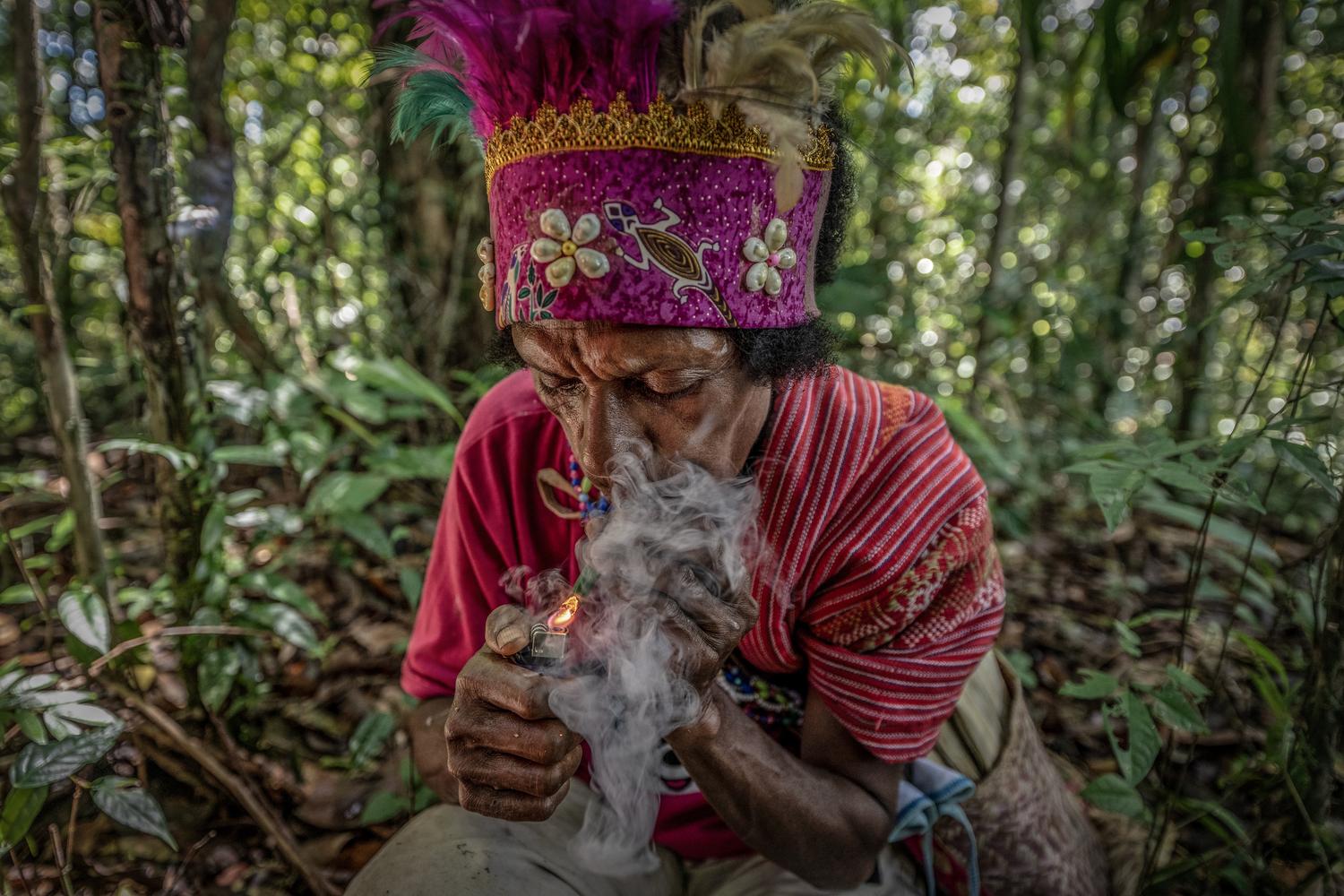
Sasi is a traditional conservation practice that encompasses rituals and taboos designed to sustainably manage natural resources. Through sasi, specific areas or resources (such as forests, fish, or other natural elements) are declared off-limits for harvesting during certain times to allow for regeneration and sustainable use.

In the heart of Nakna Village, Nelci Meres — bearing his sub-tribe's name — climbs a water apple tree just meters from his home.
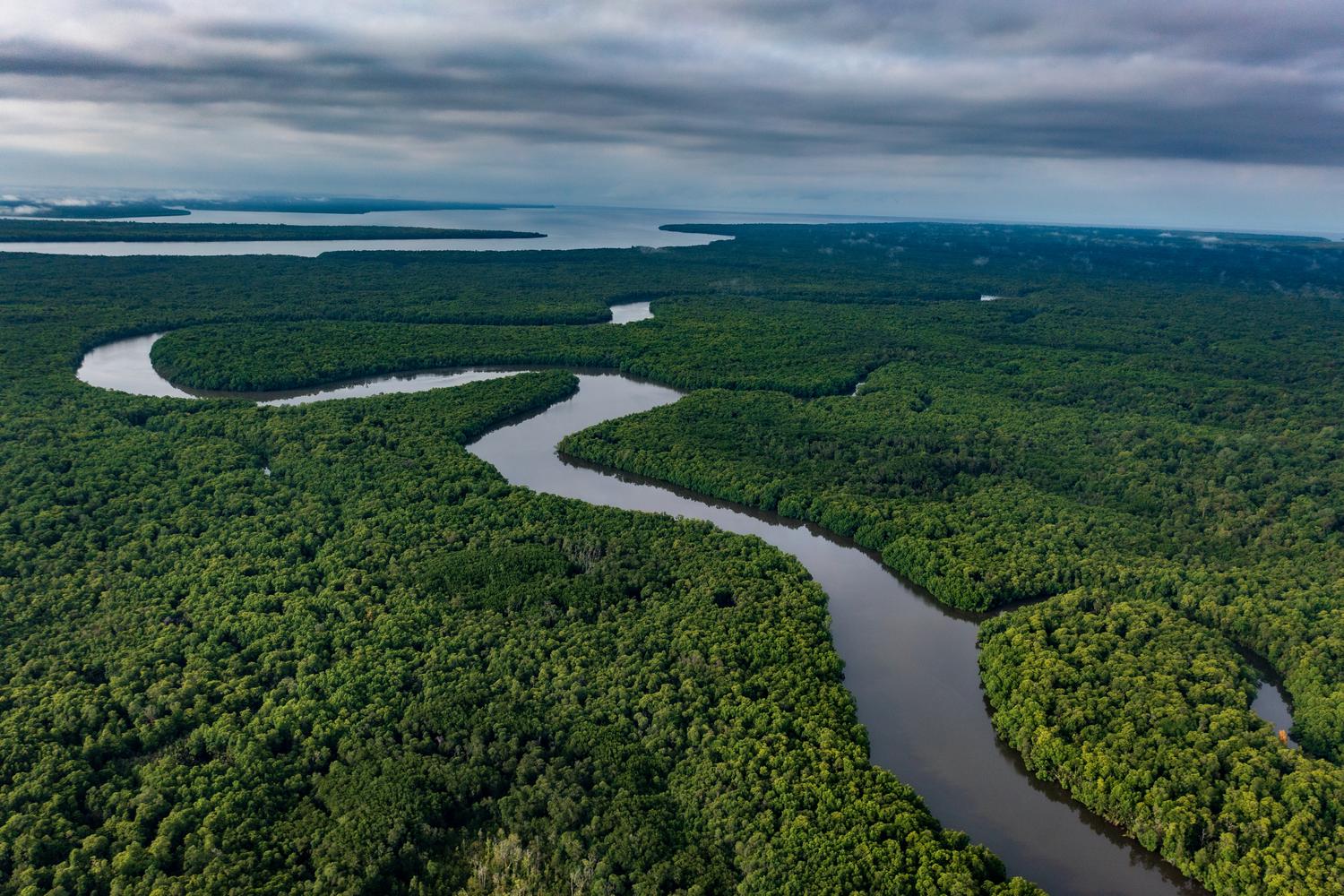
From above, the mangroves of South Sorong in West Papua weave an intricate tapestry as the waters gracefully meander through. These vibrant ecosystems — defined by their lush greenery and winding waterways — form lifelines that sustain both their human and wildlife inhabitants.
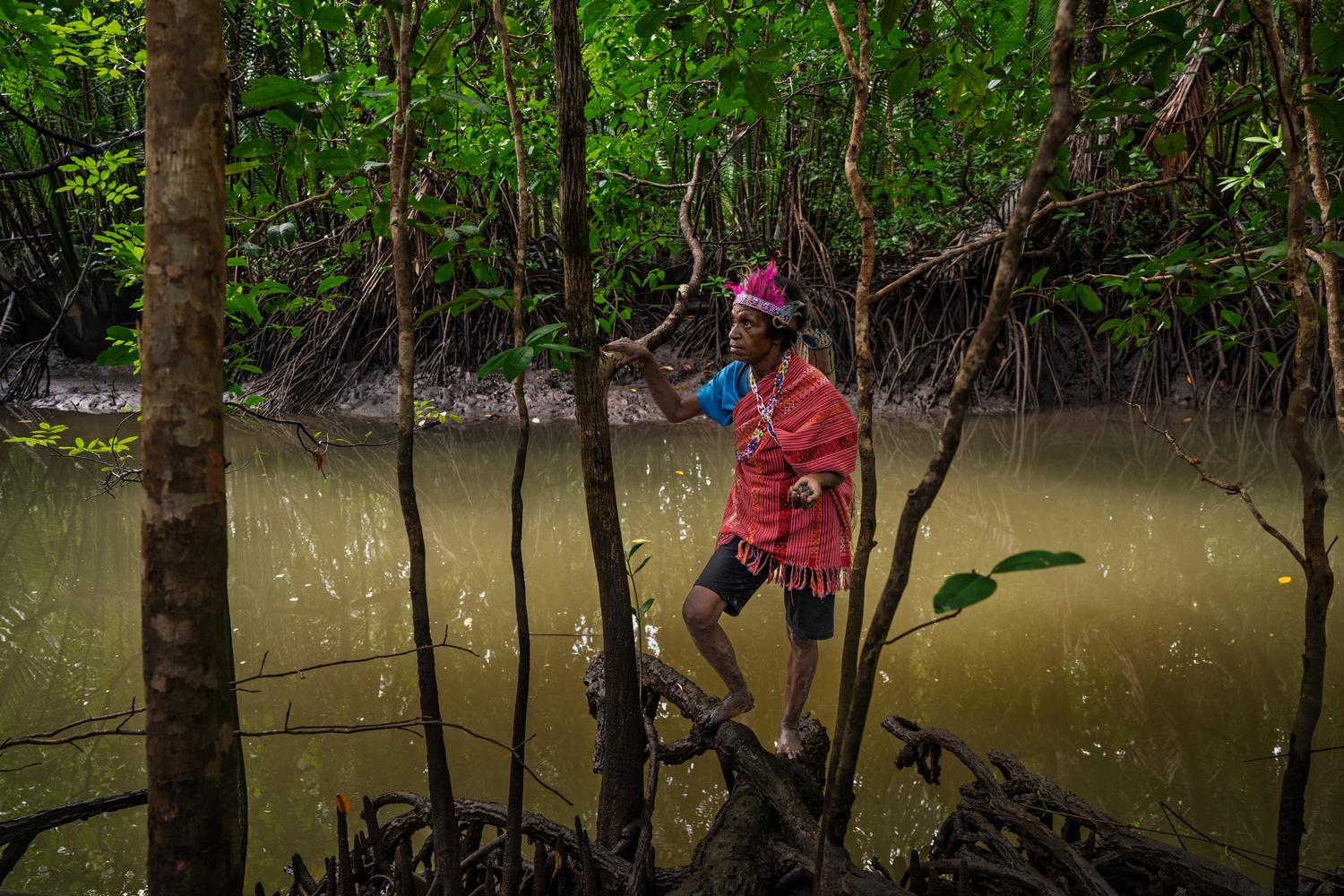
Amidst the gnarled roots of the mangrove forests lies a hidden world teeming with life. These resilient ecosystems serve as nature's pantry, offering a bounty of seafood and resources that sustain local communities. Here, Fransina Sianggo surveys the landscape, looking for crabs and snails hidden in the trees.
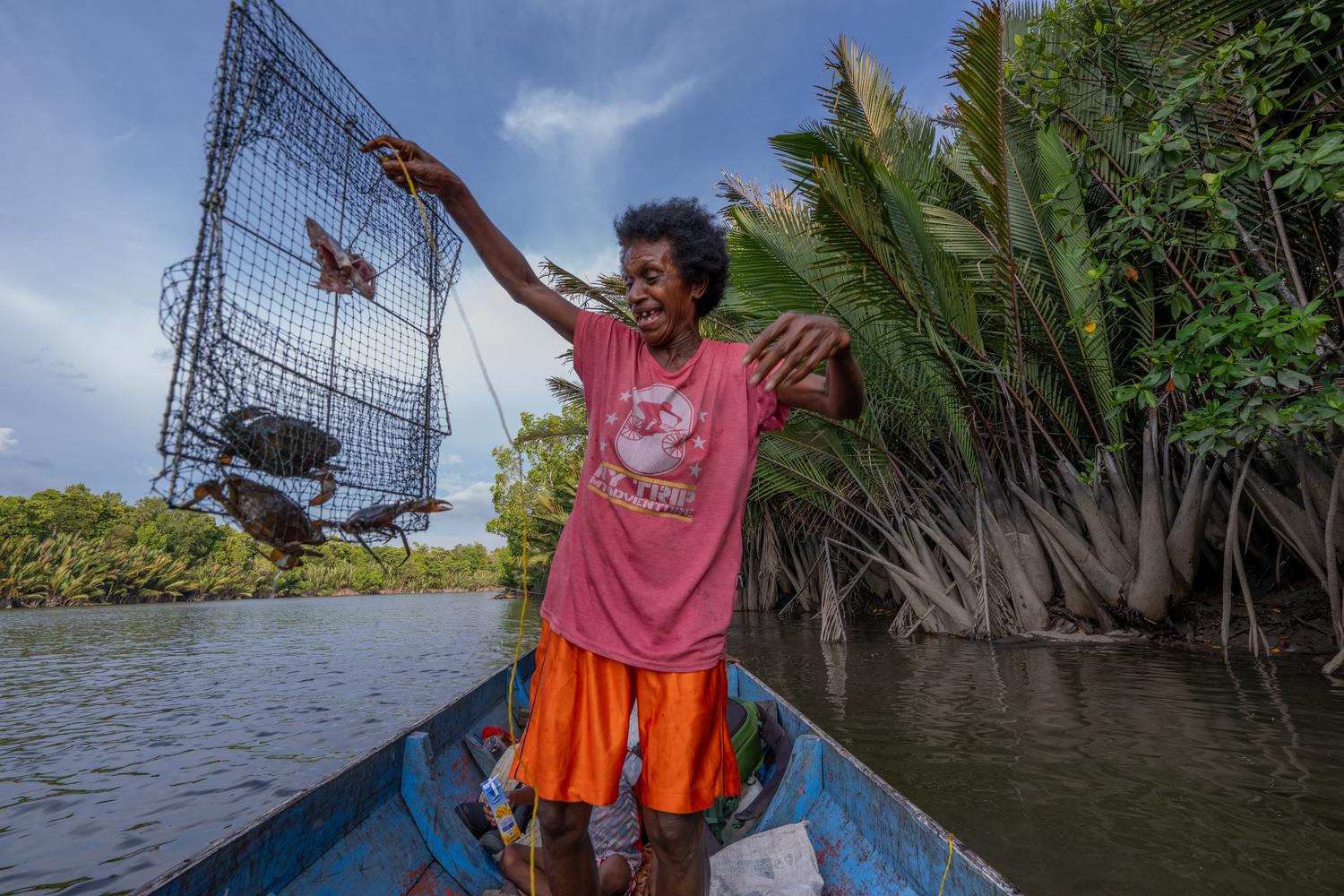
Fransina Sianggo excitedly pulls out a trap covered in crabs from nearby mangroves.
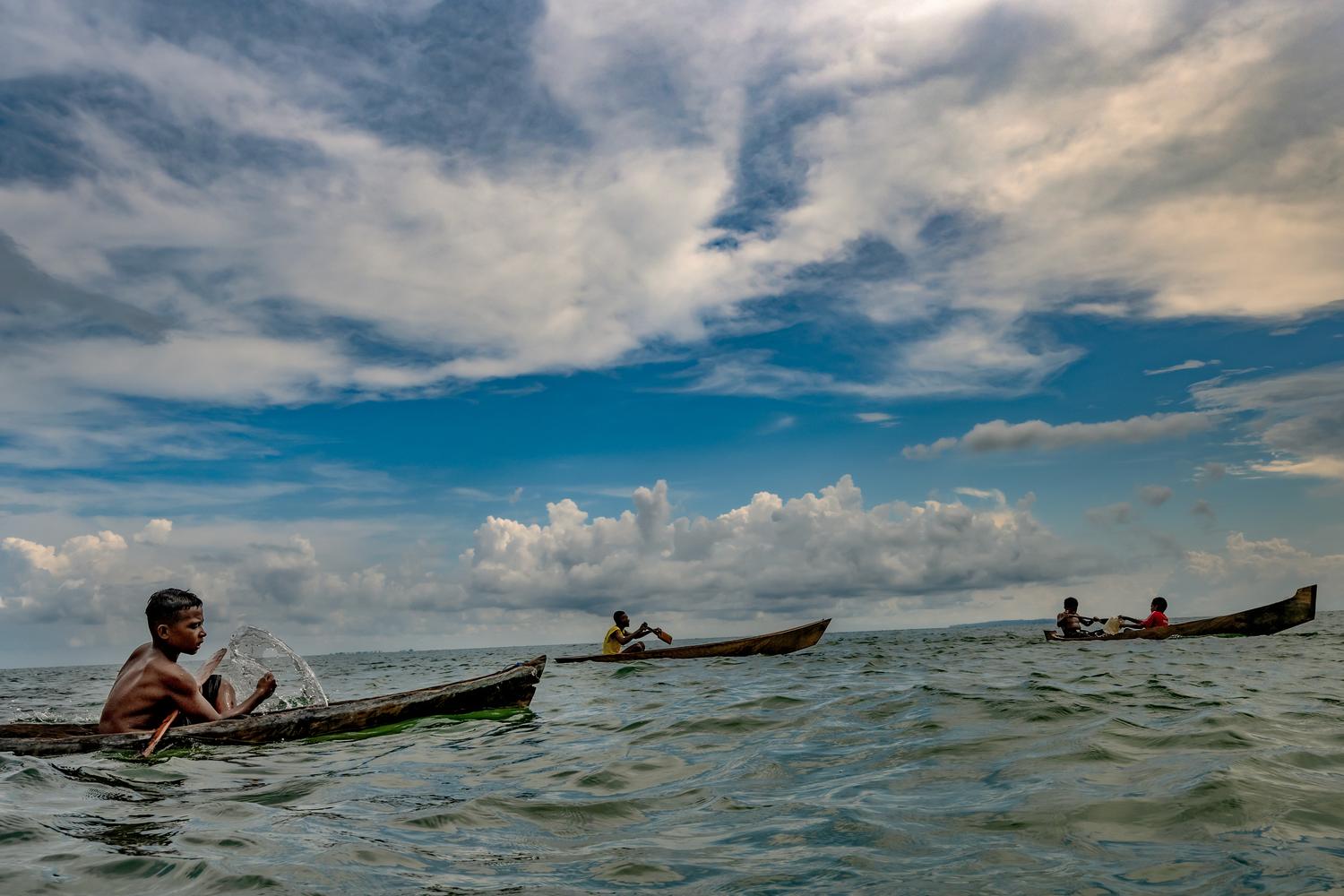
In West Papua, children paddle their dugout canoes as the tide rises near the mangrove forest. With each stroke, they honor the ocean they call 'father' — for its bounty and wisdom. The lush mangroves and nearby forests are tenderly regarded as 'mother’. Here, the cycle of nature and family intertwines, teaching respect, balance, and stewardship.
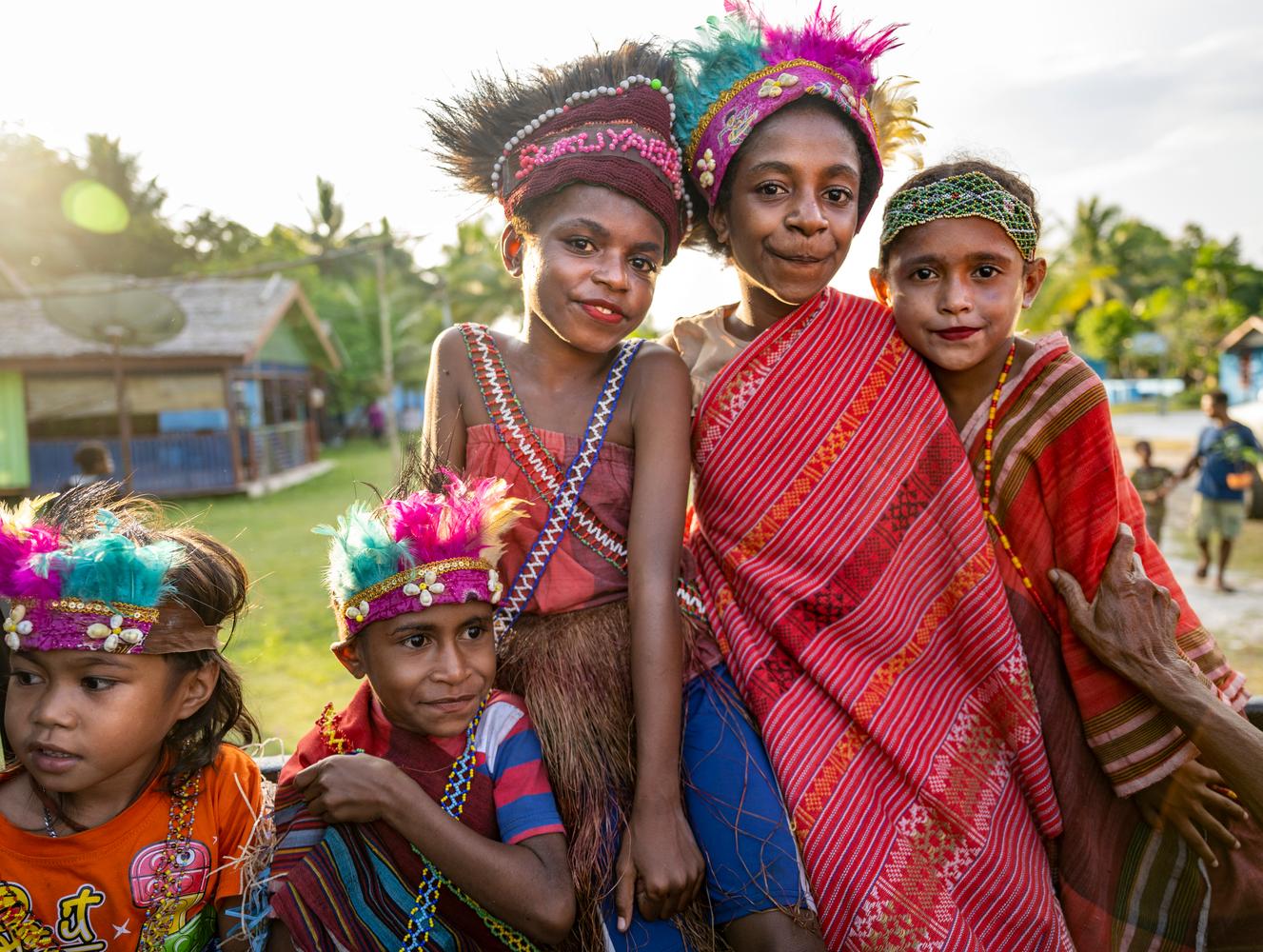
In the heart of Nakna Village, children get dressed for a ceremony as they go to a nearby forest to celebrate it as a living source of nourishment and joy.